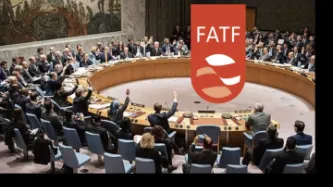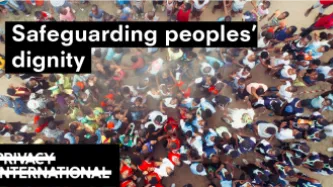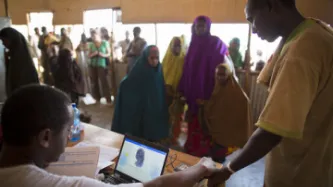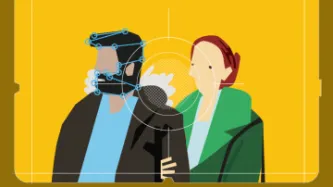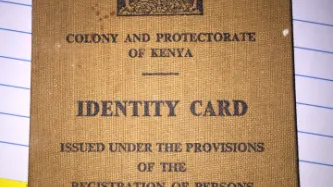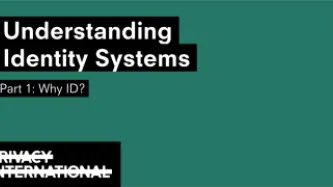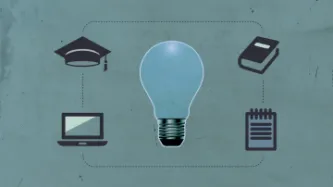Search
Content type: Case Study
The way digital technologies are deployed has radically influenced the distribution of power in our societies. Digital information can be created, transmitted, stored and distributed far more easily and cheaply than ever before, on a scale that was previously unimaginable. This information is power in the hands of those that know how to use it. Governments and companies alike have been racing to occupy as much space as possible, increasing their surveillance and their knowledge about each and…
Content type: News & Analysis
Updated January 18th 2021
The Government of Myanmar is pushing ahead with plans to require anyone buying a mobile SIM card to be fingerprinted and hand over their ID cards, according to procurement documents circulated to prospective bidders.
The plans are a serious threat to privacy in a country lacking any data protection or surveillance laws and where minorities are systematically persecuted, and must be scrapped.
According to technical requirements developed by Myanmar’s Post and…
Content type: Long Read
Following a series of FOI requests from Privacy International and other organisations, the Department of Health and Social Care has now released its contract with Amazon, regarding the use of NHS content by Alexa, Amazon’s virtual assistant. The content of the contract is to a big extent redacted, and we contest the Department of Health’s take on the notion of public interest.
Remember when in July this year the UK government announced a partnership with Amazon so that people would now…
Content type: News & Analysis
This creates a restraint on all people who merely seek to do as people everywhere do: to communicate freely.
This is a particularly worrying development as it builds an unreliable, pervasive, and unnecessary technology on top of an unnecessary and exclusionary SIM card registration policy. Forcing people to register to use communication technology eradicates the potential for anonymity of communications, enables pervasive tracking and communications surveillance.
Building facial recognition…
Content type: News & Analysis
CC: BY (Kirill Sharkovski)-SA
Este artículo fue escrito por Jamila Venturini, Coordinadora regional de Derechos Digitales. El artículo fue publicado por primera vez aquí. This article is available in English.
La implementación de programas que condicionan el acceso a servicios básicos por medio de vigilancia estatal y privada agudizan la inequidad imperante en el continente.
Mientras la brecha entre ricos y pobres se incrementa en el mundo, América Latina sigue siendo la región donde la…
Content type: News & Analysis
Picture: CC: BY (Kirill Sharkovski)-SA
This article was written by Jamila Venturini from Derechos Digitales. The original version (in Spanish) is available here.
How implementing social protection programmes that condition access to basic services to state and private surveillance exacerbate the prevailing inequality on the continent.
While the gap between rich and poor is increasing in the world, Latin America remains the most unequal region of the world. According to the Economic…
Content type: Press release
Tomorrow, the UN Special Rapporteur on extreme poverty and human rights will present his annual report to the UN General Assembly in New York on digital technology, social protection and human rights. On the same day, Privacy International will be launching its own series on surveillance in the provision of social services.
The Special Rapporteur warns that specific areas need to be addressed to "avoid stumbling zombie-like into a digital welfare dystopia" and that "values such as…
Content type: Long Read
[Photo credit: Images Money]
The global counter-terrorism agenda is driven by a group of powerful governments and industry with a vested political and economic interest in pushing for security solutions that increasingly rely on surveillance technologies at the expenses of human rights.
To facilitate the adoption of these measures, a plethora of bodies, groups and networks of governments and other interested private stakeholders develop norms, standards and ‘good practices’ which often end up…
Content type: Long Read
In this piece we examine mobile phone extraction, relying on publicly available information and Privacy International’s experience from conducting mobile phone extraction using a Cellebrite UFED Touch 2. We welcome input from experts in the field. This is a rapidly developing area. Just as new security features are announced for phones, so too new methods to extract data are found.
[All references can be found in the pdf version below.]
General explanation of mobile phone…
Content type: Long Read
Photo by Nadine Shaabana on Unsplash
Digital identity providers
Around the world, we are seeing the growth of digital IDs, and companies looking to offer ways for people to prove their identity online and off. The UK is no exception; indeed, the trade body for the UK tech industry is calling for the development of a “digital identity ecosystem”, with private companies providing a key role. Having a role for private companies in this sector is not necessarily a problem: after all, …
Content type: News & Analysis
Photo by Sharon McCutcheon on Unsplash
In May, the United Nations Special Rapporteur on extreme poverty and human rights, Philip Alston invited all interested governments, civil society organisations, academics, international organisations, activists, corporations and others, to provide written input for his thematic report on the human rights impacts, especially on those living in poverty, of the introduction of digital technologies in the implementation of national social protection…
Content type: News & Analysis
The global counter-terrorism agenda is driven by a group of powerful governments and industry with a vested political and economic interest in pushing for security solutions that increasingly rely on surveillance technologies at the expenses of human rights.
To facilitate the adoption of these measures, a plethora of bodies, groups and networks of governments and other interested private stakeholders develop norms, standards and ‘good practices’ which often end up becoming hard national laws…
Content type: News & Analysis
The Irish Data Protection Commissioner has made a ruling on the controversial Public Services Card (PSC) that has described much of what is is done with the card as unlawful. The PSC has proven controversial: introduced in 2012 for welfare claimants, it's use expanded to more and more uses, including its use to get a driving licence or passport. Now, following campaigns from civil liberties organisations, this expansion of use has now been found to be unlawful by Ireland's Data Protection…
Content type: News & Analysis
Picture: XoMEoX CC BY 2.0
1. Definitions of ‘fraud’ lack transparency and are often deceptive. States often define ‘fraud’ in vague and overbroad terms, which creates a seemingly compelling catch-all justification for denying or terminating benefits. The general public will often support this political narrative unless they have a greater understanding of the realities facing social benefit claimants and their experience navigating confusing and complex social benefits systems.…
Content type: Long Read
Image credit: Emil Sjöblom [ShareAlike 2.0 Generic (CC BY-SA 2.0)]
Prepaid SIM card use and mandatory SIM card registration laws are especially widespread in countries in Africa: these two factors can allow for a more pervasive system of mass surveillance of people who can access prepaid SIM cards, as well as exclusion from important civic spaces, social networks, and education and health care for people who cannot.
Mandatory SIM card registration laws require that people provide personal…
Content type: Long Read
By Valentina Pavel, PI Mozilla-Ford Fellow, 2018-2019
Our digital environment is changing, fast. Nobody knows exactly what it’ll look like in five to ten years’ time, but we know that how we produce and share our data will change where we end up. We have to decide how to protect, enhance, and preserve our rights in a world where technology is everywhere and data is generated by every action. Key battles will be fought over who can access our data and how they may use it. It’s time to take…
Content type: Long Read
Whilst innovation in technology and data processing have provided individuals and communities with new opportunities to exercise their fundamental rights and freedoms, this has not come without risks, and these opportunities have not been enjoyed by all equally and freely.
Our relationships and interactions with governments and industry have become increasingly dependent on us providing more and more data and information about ourselves. And, it’s not only the information we provide knowingly…
Content type: News & Analysis
By Ailidh Callander, Legal OfficerThis piece first appeared in the 500th edition of the Scottish Legal Action Group Journal (2019 SCOLAG (500, June) 124Political scandal, stronger regulation on privacy but what about social protection?In an increasingly digitalised and data driven world, an era of government and corporate mass data exploitation, the right to privacy and data protection and what this means in practice is more important than ever. Surveillance is a power generator and opportunity…
Content type: Report
Like many others, PI were alarmed at recent reports that Facebook have been making mobile phone numbers (which users believed to be) provided for the express purpose of "two-factor authentication" (2FA) both searchable, and a target for advertising by default.
One of the myriad ways Facebook displays targeted adverts to users is through so-called "Custom Audiences". These "custom audiences" are lists of contact details, including phone numbers and email addresses, uploaded by advertisers.…
Content type: Long Read
IMAGE SOURCE: "My Phone Bought This" by oliver t is licensed under CC BY-NC-ND 4.0.
LAST UPDATE: 16th May 2022.
Mandatory SIM card registration laws require people to provide personal information, including a valid ID or even their biometrics, as a condition for purchasing or activating a SIM card. Such a requirement allows the state to identify the owner of a SIM card and infer who is most likely making a call or sending a message at any given time.
SIM card…
Content type: Case Study
In 2030 Amtis finds a future where property rights for data were adopted. Here’s how this future plays out:
My data, my turf. This was the first graffiti I saw as I was walking down the street and I said to myself, “Yeah, big corp, we’re going to get you good!”. I am fed up with companies making insane amounts of money from my data. If this is the game we’re playing, I want my fair share.
I was not the only one thinking like this. A few years back there was a strong push towards adopting…
Content type: Advocacy
Refugees are among the most vulnerable people in the world. From the moment they flee their homes, as they pass through 'temporary' places such as refugee camps and detention centres to their 'final' destinations, they are continuously exposed to threats. In the digital age, these threats are increasingly being driven by the processing of vast amounts of highly sensitive personal data: from enrollment and registration processes needed for them to access services, to their identification and…
Content type: Examples
Reports that Amazon is planning on launching a free ad-supported music service caused Spotify’s (the Swedish audio streaming platform) shares to fall 4% on Monday, April 15th. And, on April 18th, Amazon published a blog post where it announced that launch of Amazon’s free music-streaming service in the US. The ad-supported free service became available exclusively through Alexa, Amazon’s voice assistant programmed into Echo devices. It has been reported thatthe Alexa only launch…
Content type: Advocacy
This week a public debate on facial recognition will take place in Westminster Hall.
Following a public request for comment by Darren Jones MP (Science and Technology Committee), we sent our responses to the questions asked.
Below you can find the integral content of our letter.
1. Would you consent to the police scanning your face in a crowd to check you’re not a criminal?
Facial recognition technology uses cameras with software to match live footage of people in public with…
Content type: News & Analysis
Today, the Kenyan Government is starting their biometric registration exercise known as NIIMS, leading to the issuing of Huduma Namba ID numbers. Along with our colleagues and partners in the human rights community in Kenya, we are very worried about the ramifications of this system for people in Kenya, and particularly for marginalised communities.
Thanks to the hard work and timely action of civil society in Kenya, the judiciary has intervened at the last minute. A court ruling on…
Content type: News & Analysis
Image source: Oxfam
This piece was co-authored with Ruhiya Seward, Senior Program Officer at IDRC and originally appeared here.
What if in trying to make development more equitable we’re creating risks that disproportionately impact people based on their gender?
Development programming aims to be both sustainable and equitable in part by recognizing the implications of inequality in its many forms, whether by gender, ethnicity, socioeconomic status, or geolocation. The adoption of the…
Content type: Examples
In June 2018, a panel set up to examine the partnerships between Alphabet's DeepMind and the UK's NHS express concern that the revenue-less AI subsidiary would eventually have to prove its value to its parent. Panel chair Julian Huppert said DeepMind should commit to a business model, either non-profit or reasonable profit, and noted the risk that otherwise Alphabet would push the company to use its access to data to drive monopolistic profits. In that case, DeepMind would either have to…
Content type: Examples
Even after 2015, when Facebook said it had walled off user records from third parties, inside sources and court documents showed that the company went on maintaining a whitelist of companies that were allowed customised access to information about users' Friends, phone numbers, and a "friend link" metric that measured the degrees of separation. Whitelisted companies included Nissan and Royal Bank of Canada, and others that either advertised on the network or were valuable to Facebook for other…
Content type: Explainer
Introduction
Of all the data-intensive initiatives that a government can introduce, some of the largest are ID systems. They have implications across a broad range of human and civil rights. How do we begin to critique an ID system, to begin to understand its strengths and weaknesses? There are a series of issues that we believe should be addressed in the development of any ID system.
This could be of particular relevance to civil society organisations (CSOs): this is because civil…
Content type: Long Read
The Privacy International Network is celebrating Data Privacy Week, where we’ll be talking about how trends in surveillance and data exploitation are increasingly affecting our right to privacy. Join the conversation on Twitter using #dataprivacyweek.
Innovations in surveillance and data exploitation present challenges in the fight to protect personal data across the world. Since 1990 we have been working to build a global movement through working with others - from leading civil society…










